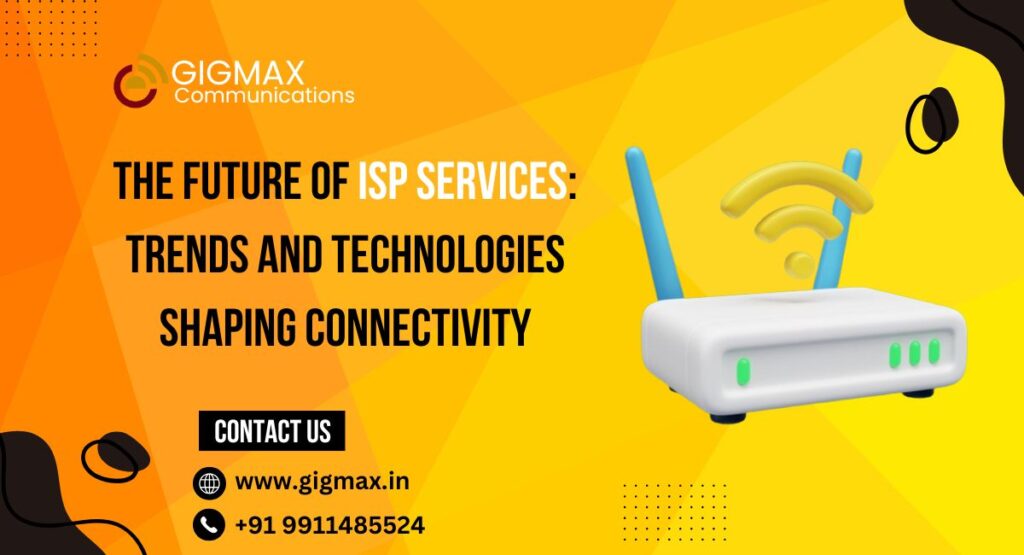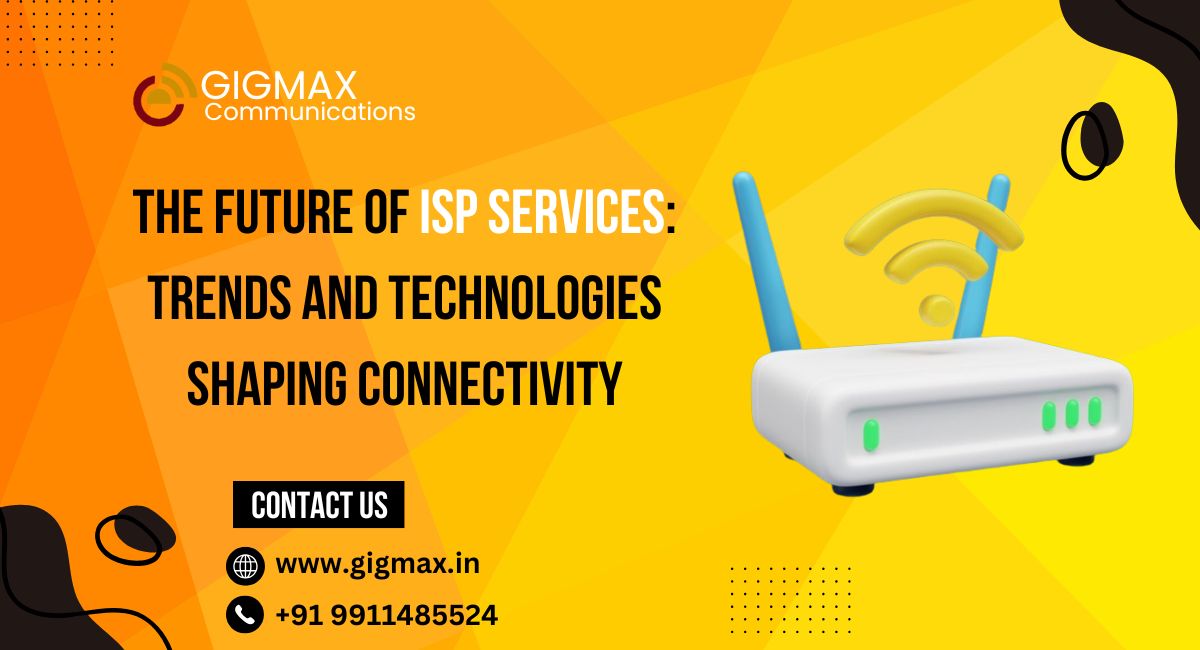
In the rapidly evolving digital age, the role of ISP services (Internet Service Providers) has become more critical than ever. With increasing reliance on the internet for everything from work and education to entertainment and communication, the future of ISP services promises to bring faster, more reliable, and innovative connectivity solutions.
The ongoing technological advancements in internet infrastructure are set to redefine how individuals and businesses experience the online world. Let’s explore the key trends and technologies shaping the future of ISP services.
1. Expansion of Fiber-Optic Networks
One of the most significant trends in ISP is the expansion of fiber-optic networks. Fiber-optic technology provides ultra-fast internet speeds by transmitting data as light signals through glass or plastic fibers. Unlike traditional broadband, fiber-optic connections offer consistent high-speed internet, low latency, and better bandwidth, which is essential for data-intensive activities like 4K video streaming, online gaming, and remote work.
For instance, in regions like Faridabad, the growing demand for high-speed internet has led ISP Faridabad and other internet services providers to invest heavily in fiber-optic infrastructure. As this trend continues, more households and businesses will have access to high-speed fiber internet, enabling smoother online experiences.
2. Rise of 5G Networks
The global rollout of 5G networks is another game-changer for the future of Internet. 5G technology offers significantly faster download and upload speeds compared to 4G, along with lower latency. This is expected to transform industries, enhance smart city applications, and support the growing demand for Internet of Things (IoT) devices.
For individuals, 5G means improved mobile internet connectivity, with speeds rivaling those of home broadband. Many internet companies near me are already working on integrating 5G into their service offerings, providing an alternative to traditional wired connections. In the future, 5G could replace or supplement home internet services, giving consumers more flexibility in choosing their preferred connection type.
3. Artificial Intelligence in ISP Services
Artificial Intelligence (AI) is increasingly being adopted by ISPs to improve service efficiency and customer experiences. AI-powered tools can analyze network performance in real-time, allowing ISPs to identify and resolve potential issues before they affect users. This proactive approach reduces downtime and ensures a smoother, more reliable internet experience for customers.
AI can also be used to personalize service recommendations, automate customer support, and optimize network traffic. As more internet broadband near me providers incorporate AI into their operations, users can expect faster issue resolution, personalized plans, and enhanced customer service.
4. Wi-Fi 6 and Beyond
Wi-Fi 6 is the latest generation of wireless networking technology, and it promises to revolutionize internet connectivity within homes and businesses. With faster speeds, better performance in crowded areas, and improved energy efficiency, Wi-Fi 6 is ideal for modern households that rely on multiple connected devices.
As more internet services providers upgrade their infrastructure to support Wi-Fi 6, users will experience faster wireless speeds, reduced latency, and better overall network performance. The future may also bring Wi-Fi 7, which is expected to deliver even faster speeds and more efficient data transmission, further improving the performance of wireless internet.
5. The Role of Satellite Internet
While fiber-optic and 5G networks are focused on urban and suburban areas, satellite internet is poised to play a critical role in providing connectivity to rural and remote regions. Companies like Starlink and Amazon’s Project Kuiper are developing satellite-based internet solutions that can deliver high-speed broadband to areas where traditional infrastructure is not feasible.
As satellite internet technology advances, users in remote areas will gain access to reliable internet, closing the digital divide and ensuring that everyone has access to the opportunities the internet provides.
6. Cybersecurity and Privacy
As internet usage grows, so does the importance of cybersecurity and privacy. The future of Internet will include more advanced security features to protect users from cyber threats. ISPs are expected to integrate AI-driven cybersecurity tools that can detect and prevent malicious activities in real-time.
Moreover, ISPs will need to ensure user privacy by complying with stringent data protection regulations. As data becomes more valuable, protecting sensitive information will be a top priority for both users and providers.
Conclusion
The future of ISP services is bright, with innovative technologies like fiber-optic networks, 5G, AI, and satellite internet poised to transform the way we connect to the digital world. Whether you’re searching for internet broadband near me or relying on ISP Faridabad, the next few years will bring faster, more reliable, and secure internet solutions that meet the demands of modern life.
As these technologies continue to evolve, the internet will become more accessible, efficient, and integral to daily activities for both individuals and businesses alike.




Leave a Reply